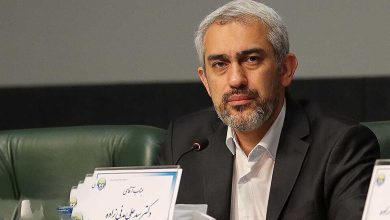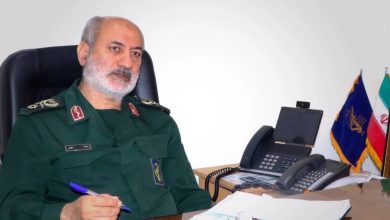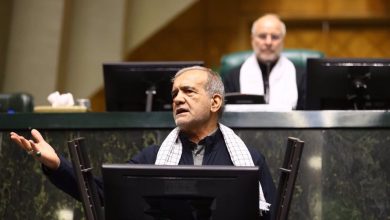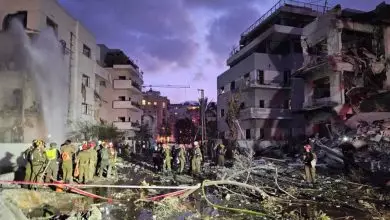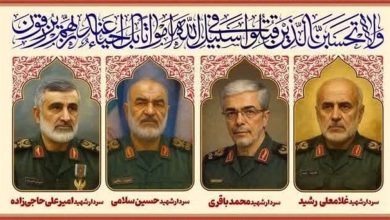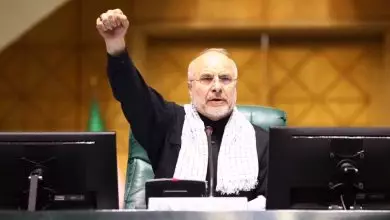Iran Possesses Comprehensive Capability to Produce Nuclear Weapons: Official Report
Kamal Kharrazi, the head of Iran's Strategic Council on Foreign Relations, has announced that the nation is entirely ...
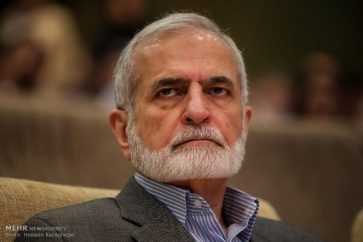
Kamal Kharrazi, the head of Iran’s Strategic Council on Foreign Relations, has stated that the nation possesses the full capability to develop nuclear weapons. However, he emphasized that the sole deterrent is the existing fatwa issued by Iran’s Supreme Leader, which prohibits the pursuit of such armaments.
In an exclusive interview with Al Mayadeen, Kharrazi outlined Iran’s position regarding regional tensions, stressing the country’s readiness to address any potential escalations, while underscoring a preference to avert further conflict. He emphasized Iran’s robust military capabilities and hinted at possible shifts in its nuclear policy if faced with “existential threats.” Kharrazi’s comments were framed within the larger context of Iran’s geopolitical strategy and its dedication to maintaining national sovereignty.
In this context, Kharrazi highlighted Iran’s demonstration of its deterrent strength through Operation True Promise II, during which it fired numerous ballistic missiles at Israel. He remarked that the onus now lies with the Zionists, suggesting that if they persist with hostile activities, Iran is prepared to retaliate.
In addressing inquiries regarding possible revisions to Iran’s nuclear strategy, Kharrazi suggested the possibility of such adjustments, particularly in the face of an “existential threat” to the nation. He confirmed that Iran possesses the technical expertise required to manufacture nuclear weapons and faces no substantial barriers in this domain. Nonetheless, Kharrazi underlined that the Fatwa issued by the Leader of the Islamic Revolution, Ayatollah Seyyed Ali Khamenei, stands as the only deterrent preventing Iran from seeking nuclear weaponry.
An Iranian official has announced impending policy adjustments concerning projectile systems. Kharrazi highlighted Iran’s well-documented missile capabilities, which have been showcased in numerous operations. He emphasized that Iran is currently concentrating on the range of its deployed missiles, taking into account the apprehensions expressed by Western nations.
Kharrazi has emphasized that unless Western nations recognize and address Iran’s concerns, specifically those related to its sovereignty and territorial integrity, Iran is prepared to dismiss the concerns of Western countries. Consequently, Iran is likely to proceed with the development and extension of its missile range capabilities.
In a statement to Al Mayadeen, Kharrazi commented on what he described as an “unequal” conflict in the region, highlighting Israel’s role in what he claims involves ethnic cleansing and the extermination of populations. He asserted that this campaign is directed against those striving to protect their lives, existence, and territories.
He voiced optimism for a rapid end to the conflict, asserting that Israel is conducting “horrific ethnic cleansing” under the false impression of victory. Kharrazi stressed that these actions should not be seen as a legitimate triumph but instead represent a significant breach of human rights.
He further emphasized Israel’s recent measures to impede the delivery of crucial aid by the United Nations Relief and Works Agency for Palestine Refugees in the Near East (UNRWA), noting that the agency’s attempts to supply water and food to the beleaguered population of Gaza have been obstructed.
He underscored that this action epitomizes “the pinnacle of anti-humanitarian principles.”
He urged the global community to “wake up and apply pressure on Israel,” criticizing Western nations, including European countries and the United States, for their continued support of what he described as a “brutal and criminal entity.” He pointed out that these countries defend Israel’s actions by providing financial aid and supplying weapons.
Kharrazi emphasized that the implications and eventual outcomes of the current situation are clear, asserting that the people’s determination and resistance are indomitable. He stated that both Palestinian and Lebanese groups remain resolute in their commitment to resist and endure the prevailing oppression, vowing to confront these challenges until they achieve victory.
Amid ongoing ceasefire discussions, Kharrazi reiterated Iran’s non-interventionist stance, emphasizing that it is the prerogative of the Lebanese and Palestinians to engage in negotiations and establish a ceasefire agreement. He further assured that Iran would back any decision made by these nations.
An Iranian official reaffirmed the nation’s commitment to honoring its existing agreements, contingent upon reciprocal compliance from the other party involved. The official voiced disappointment over the opposing side’s failure to meet their obligations, noting that rather than pursuing negotiations, they have persisted in imposing sanctions on the Islamic Republic of Iran.
An Iranian official elaborated on the nature of Iranian-Russian relations and the evolving regional landscape, in an interview with Al Mayadeen. The official stated that Russia and China are working towards establishing a new international order aimed at reducing Western influence, an initiative that Iran strongly supports.
He stressed the importance of emerging powers, such as Iran, having a significant influence in forming a new global order that advocates for increased democratic governance and deviates from Western colonial influences.
Kharrazi emphasized that recent initiatives undertaken within the frameworks of the Shanghai Cooperation Organization, BRICS, and the New Development Bank are consistent with this strategic vision. He highlighted that Iran, as a member of these organizations, is proactively engaged in efforts to forge a new global order.
He further emphasized that a comprehensive agreement between Iran and the Russian Federation has been finalized, covering all facets of bilateral relations and cooperation. Kharrazi revealed that the agreement was initially set to be signed during the recent BRICS summit in Kazan, Russia. However, Russian officials expressed a preference for finalizing the deal during an upcoming bilateral visit to underscore its importance, which is expected to take place in the near future.
Kharrazi emphasized that all neighboring nations are cognizant of Iran’s strategic policy and are aligning accordingly. He noted, however, that some parties who are dissatisfied with this strategy might attempt to spread biased media narratives that fail to support regional interests.


